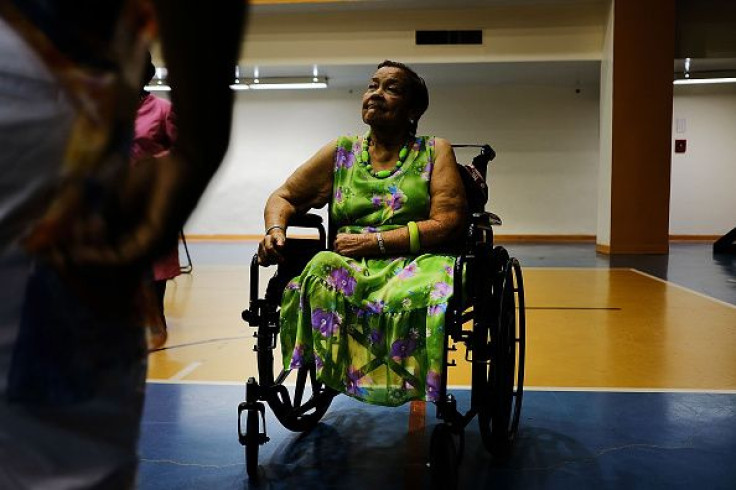How Does The Senate Health Care Bill Affect Seniors?

After weeks of secrecy, Senate Republicans released their health care bill Thursday en route to repealing the Affordable Care Act, or Obamacare, cutting taxes on high-income earners and businesses and making deep cuts to Medicaid. Those cuts could have a drastic impact on senior citizens.
Medicaid covers 20 percent of all Americans and 40 percent of low-income adults. It also pays for most people who live in nursing homes.
READ: Are There Enough Votes To Pass GOP Health Care Bill? Some Republicans Won't Support It
The Kaiser Family Foundation, a health care research nonprofit, estimates Medicaid pays for the care of 62 percent of nursing home residents. In some states, the number is more than three in four seniors. In West Virginia, Medicaid pays for 76 percent of seniors in nursing homes; in Alaska, 79 percent, and in the District of Columbia, 80 percent. Medicare pays for skilled nursing care, but usually for a limited number of days, typically after surgeries or medical emergencies.
Kaiser puts the average cost of a year in a nursing home is $82,000. As of 2015, there were 1.4 million people in nursing homes.
The bill would end Medicaid’s open entitlement, capping the dollar amount covered.
In addition to Medicaid cuts, the bill proposes lowering subsidies that help low-income Americans pay for health care on state exchanges the ACA created, hitting older Americans, especially those with pre-existing conditions and not yet eligible for Medicare, the hardest.
The American Association of Retired Persons (AARP) a lobbying group for senior citizens, slammed the Republican’s bill.
“This new Senate bill was crafted in secrecy behind closed doors without a single hearing or open debate — and it shows,” AARP Executive Vice President Nancy LeaMond said in a statement. “The Senate bill would hit millions of Americans with higher costs and result in less coverage for them. AARP is adamantly opposed to the age tax, which would allow insurance companies to charge older Americans five times more for coverage than everyone else while reducing tax credits that help make insurance more affordable.”
Presidential adviser Kellyanne Conway defended the bill Sunday on ABC’s “The Week": “We don’t see them as cuts. It’s slowing the rate of growth in the future and getting Medicaid back to where it was.”
Senate Majority Leader Mitch McConnell made a pitch for it on the Senate floor Thursday.
“We have to act. Because Obamacare is a direct attack on the middle class, and American families deserve better than its failing status quo — they deserve better care. That’s just what we’re going to continue working to bring them,” McConnell said.
READ: Does New Health Care Bill Cover Preexisting Conditions? [READ FULL TEXT]
The bill is being considered under budget reconciliation, instead of new legislation, and thus only needs a simple majority to pass, as opposed to the 60 votes necessary for overcoming a filibuster.
Republicans lead the Senate 52-48, meaning that for the bill to pass, McConnell can only lose two Republicans. So far, five Republicans have said they cannot support the GOP measure and a number of others are saying they want to wait to see the bill in its final form before making a decision. Democrats have uniformly denounced the bill.
© Copyright IBTimes 2024. All rights reserved.











